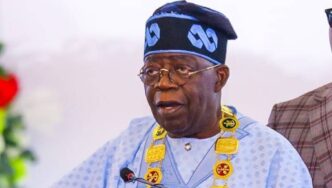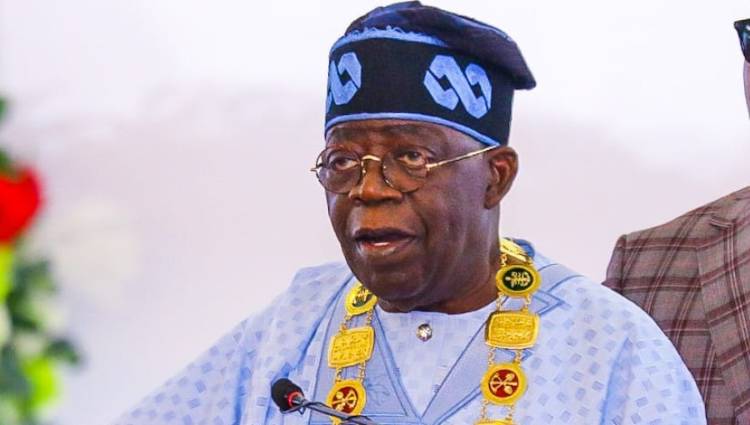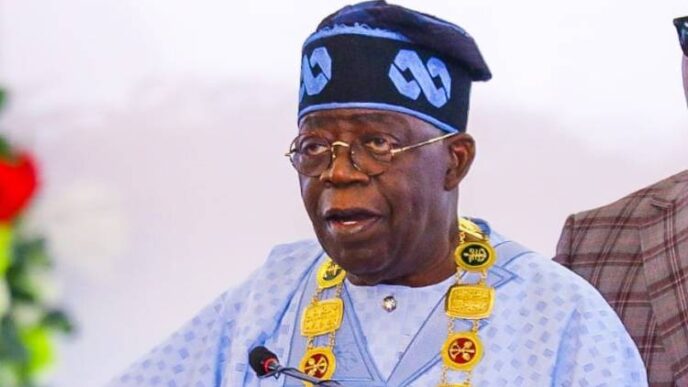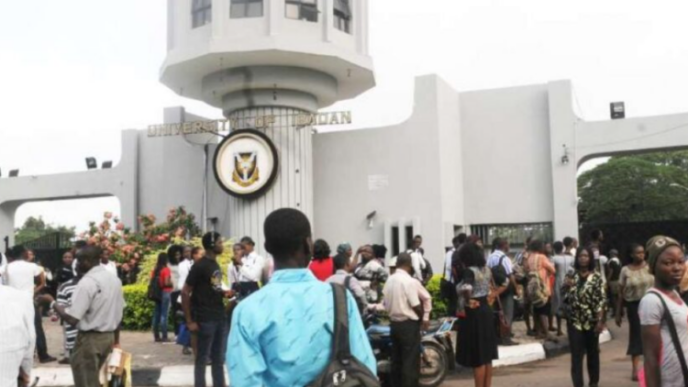The United States District Court for the District of Columbia has ordered top U.S. law enforcement agencies to release confidential information generated on President Bola Tinubu during a “purported federal investigation in the 1990s.”
According to reports, Judge Beryl Howell issued the order on Tuesday, stating that withholding the information from public disclosure is “neither logical nor plausible.”
An American citizen, Aaron Greenspan, had filed a lawsuit in June 2023 under the Freedom of Information Act (FOIA) against the Executive Office for U.S. Attorneys (EOUSA), Department of State, Federal Bureau of Investigation (FBI), Internal Revenue Service (IRS), Drug Enforcement Administration (DEA), and the Central Intelligence Agency (CIA).
In his complaint, Mr. Greenspan accused the law enforcement agencies of violating FOIA by failing to release, within the statutory timeframe, documents related to “purported federal investigations into” President Tinubu and one Abiodun Agbele.
Between 2022 and 2023, Mr. Greenspan submitted 12 FOIA requests to six different U.S. government agencies, seeking information about a joint investigation conducted by the FBI, IRS, DEA, and the U.S. Attorney’s Offices for the Northern District of Indiana and Northern District of Illinois.
According to Mr. Greenspan, the requested records pertain to charging decisions regarding the activities—particularly money laundering—of a Chicago-based heroin trafficking ring that operated in the early 1990s.
In each of the FOIA requests, Mr. Greenspan sought criminal investigative records related to four individuals allegedly connected to the drug ring: Bola Ahmed Tinubu, Lee Andrew Edwards, Mueez Abegboyega Akande, and Abiodun Agbele.
In response to the requests, all five U.S. agencies issued “Glomar responses,” refusing to confirm or deny whether the requested records existed.
Mr. Greenspan challenged these responses with the Department of Justice’s Office of Information Policy (OIP), which ultimately upheld the agencies’ refusal to confirm or deny the existence of the requested records.
Mr. Greenspan subsequently filed a lawsuit on June 12, 2023, naming the FBI, DEA, IRS, EOUSA, and the Department of State as defendants, contesting each agency’s response to his FOIA requests.
Court documents reveal that the CIA was added as a defendant in the First Amended Complaint, which included a challenge to the agency’s Glomar response to Mr. Greenspan’s FOIA request.
On October 20, 2023, Mr. Greenspan filed an emergency motion requesting a hearing to compel the U.S. agencies to immediately produce the records. He cited the Nigerian Supreme Court’s upcoming hearing on the 2023 presidential election, which was scheduled to begin just three days later, as the basis for urgency.
However, on October 23, 2023, the emergency motion was denied on grounds that it failed to “satisfy any of the requirements for emergency injunctive relief.”
That same day, President Tinubu moved to intervene in the case, citing privacy concerns over his “confidential tax records” and documents from federal law enforcement agencies that, he argued, fell under the Privacy Act or exemptions to FOIA and should not be disclosed.
In 1993, Mr. Tinubu was said to have forfeited $460,000 to the U.S. government after authorities linked the funds to proceeds from narcotics trafficking.
This forfeiture featured prominently during the 2023 Presidential Election Petition Court proceedings, when opposition candidates Atiku Abubakar and Peter Obi challenged Mr. Tinubu’s eligibility to contest Nigeria’s presidency. However, the court, in a unanimous ruling, dismissed the suits and affirmed Mr. Tinubu’s election.
The Ruling
On Tuesday, Judge Howell ruled partly in Mr. Greenspan’s favor in the U.S. case.
The judge declared that the ‘Glomar’ responses issued by the FBI and DEA were “improper and must be lifted,” stating that these agencies failed to justify their invocation of FOIA exemptions.
Judge Howell emphasized that since it had already been acknowledged that Mr. Tinubu was a subject of a federal investigation involving both the FBI and DEA, “the claim that the Glomar responses were necessary to protect this information from public disclosure is at this point neither logical nor plausible.”
Why the FOIA request should be granted
Expanding on his ruling, Judge Howell explained that a FOIA requester can challenge the legitimacy of a Glomar response in two ways: by contesting the agency’s assertion that confirming or denying the existence of records would cause identifiable harm under a FOIA exemption; or by demonstrating that the agency had “officially acknowledged otherwise exempt information through prior disclosure,” thereby waiving its right to withhold that information.
In this case, Mr. Greenspan advanced both arguments. He asserted that:
The DEA had officially confirmed investigations into Agbele’s involvement in drug trafficking;
Both the FBI and DEA had confirmed investigations relating to Tinubu’s alleged involvement with the drug ring;
Any privacy concerns implicated by the FOIA requests were outweighed by the public’s right to know; and
The CIA had officially acknowledged records relevant to Tinubu.
However, the court ruled in the CIA’s favor, finding that Mr. Greenspan failed to prove that the CIA had ever officially acknowledged the existence or nonexistence of responsive records. As a result, the CIA’s Glomar response was upheld.
Tinubu and Agbele’s records cleared for release
Five of Mr. Greenspan’s FOIA requests remain under review in the pending cross-motions for summary judgment.
During the hearing, the plaintiff agreed to narrow the scope of the summary judgment briefing to cover only Glomar responses, redactions, and withholdings related to Mr. Tinubu and Mr. Agbele.
Consequently, the judge ordered all remaining defendants—except the CIA—to jointly file a status report by May 2 detailing any outstanding issues in the case, as stipulated in the accompanying court order.
How drug ring member was busted and linked to Tinubu
Among the documents submitted by Mr. Greenspan to support his FOIA case was a verified complaint and an accompanying affidavit, filed on July 26, 1993, in the Northern District of Illinois by the U.S. Department of Justice (DOJ).
These documents sought the civil forfeiture of funds held in Mr. Tinubu’s First Heritage Bank account, which were allegedly connected to a narcotics investigation.
An affidavit by IRS Special Agent Kevin Moss—who participated in the investigation—described the drug trafficking activities of Abiodun Agbele, forming the basis for the forfeiture action against Tinubu’s assets. It also detailed how Agbele was arrested after selling white heroin to an undercover agent.
Upon arriving in the United States, Agbele identified Mueez Akande (linked to Tinubu) as his uncle and said Akande had provided him with an apartment in Hammond, Indiana. This information was attributed to DEA investigators.
According to the affidavit, Agbele had sold heroin multiple times, and with the help of “Source A,” DEA agents arranged a controlled purchase that resulted in Agbele selling one ounce of white heroin to a law enforcement officer.
Following this transaction, Agbele was arrested and agreed to cooperate with authorities.
The affidavit also referenced a lease application completed by Agbele and confirmed that both the FBI and DEA had investigated Bola Tinubu as part of their wider probe into the drug trafficking network involving Agbele and others.
Special Agent Moss concluded that there was probable cause to believe that funds in certain bank accounts controlled by Bola Tinubu were involved in financial transactions that violated U.S. laws and represented proceeds from drug trafficking.
The affidavit explained that the move to target Mr. Tinubu’s assets stemmed from an investigation into money laundering linked to a heroin distribution operation in the Chicago area, based on intelligence gathered by agents from the IRS, DEA, and FBI.











